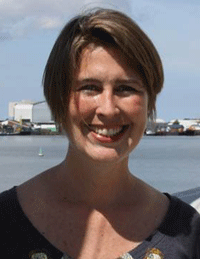This March sees the next talk in the monthly 'Water Colloquium' series organised by WIRC @ Bath exploring the breadth of water research being undertaken at the University of Bath.
Title: The effects of oxygen availability and turbulence on water quality in lakes and reservoirs
Speaker: Dr Lee Bryant
When: 16 March2017 at 1.15pm
Where: CB 4.8,University of Bath (Location and maps)
Abstract: Oxygen and mixing conditions in aquatic systems have a significant influence on the biogeochemical cycling of nutrients, metals, and other species at the sediment-water interface; these fluxes often control water quality in lakes and reservoirs. In an effort to counter problems with decreased water quality stemming from anoxic conditions, engineered techniques such as hypolimnetic oxygenation systems are being used more and more prevalently to increase aquatic oxygen concentrations and reduce concentrations of deleterious soluble species. Decreased oxygen levels in oceans are also becoming increasingly problematic due to enhanced anthropogenic effects and global warming. In both freshwater and marine systems, fluxes of oxygen, nutrients, and other chemical species are known to be strongly controlled not only by concentration but also by turbulence such as internal waves; however, hydrodynamics can be highly variable and effects on biogeochemical cycling and corresponding water quality are not currently understood. Based on in-situ microprofiler and aquatic eddy correlation measurements, results will be presented from three process studies focusing on (1) the effects of internal waves (e.g., seiches), (2) bioturbation, and (3) engineered hypolimnetic oxygenation / aeration on sediment-water fluxes of oxygen and manganese in lakes and reservoirs. These studies will be used to highlight the physical and chemical processes controlling biogeochemical cycling and related water quality in aquatic systems.
Contact: Please email Shan Bradley-Cong if you need any further information.
Respond

